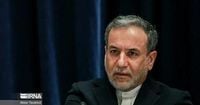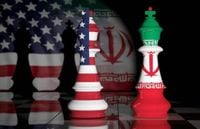On March 27, 2025, Iranian Foreign Minister Seyed Abbas Araghchi announced that Iran had sent an official response to US President Donald Trump's letter via Oman. This response was dispatched on March 26, 2025, and included a detailed explanation of Iran's views regarding the current geopolitical situation as well as the content of Trump's letter.
Araghchi emphasized Iran's firm stance against negotiating directly with the United States, particularly in light of the Trump administration's 'maximum pressure' campaign and military threats directed at Tehran. However, he indicated that Iran remains open to the possibility of indirect negotiations, similar to past interactions.
In a statement reported by the Iranian Student News Agency (ISNA) on the same day, Kamal Kharrazi, an advisor to Supreme Leader Ali Khamenei, reiterated that Iran is not entirely closing the door on dialogue. He mentioned that the country is prepared for indirect negotiations with the US to clarify positions and assess each other's views, which could lead to finding suitable solutions.
This development follows President Trump's earlier announcement in early March, where he revealed that he had sent a letter to Iranian leaders proposing a new nuclear deal negotiation. Trump also warned of potential military action should Tehran refuse to engage in dialogue. The letter was conveyed to Iran through the United Arab Emirates (UAE).
Iranian officials have consistently rejected the notion of direct negotiations, citing the threatening tone of Trump's correspondence. They argue that engaging in dialogue at this juncture would only serve to bolster Washington's maximum pressure policy against Iran.
The backdrop of these discussions is the 2015 nuclear agreement, known as the Joint Comprehensive Plan of Action (JCPOA), which was effectively dismantled in 2018 when the US withdrew from the accord under Trump's administration. Following this withdrawal, the US reinstated sanctions that severely impacted Iran's economy, prompting Tehran to gradually abandon its commitments under the nuclear deal.
As tensions continue to simmer, the prospect of indirect negotiations could provide a platform for both nations to reassess their positions and explore paths toward de-escalation. Kharrazi noted that indirect talks would allow both sides to clarify their stances and better understand each other's perspectives, potentially paving the way for future agreements.
Despite the ongoing diplomatic stalemate, the willingness of Iranian officials to consider indirect negotiations signals a glimmer of hope for dialogue. It remains to be seen how the US will respond to Iran's latest position and whether it will lead to any substantive discussions.
In summary, while Iran firmly rejects direct negotiations with the US due to the current administration's aggressive tactics, the possibility of indirect talks suggests a willingness to engage in dialogue under certain conditions. The coming weeks could be crucial in determining the trajectory of US-Iran relations as both sides navigate the complexities of their longstanding disputes.





